Note: The movies discussed in these posts are often not "family friendly" fare, but they may be suitable for adults and mature teens. I am O.K. with my teens seeing films with strong language, violence, nudity, and sex. Your mileage may vary. I recommend checking parental advisories at IMDb or Common Sense Media for more information.
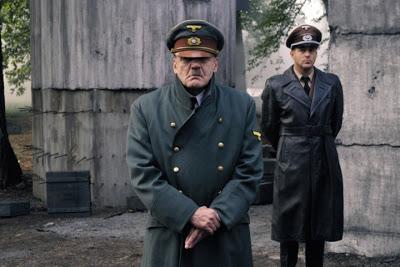

Belief in cosmic justice can be tough :-)
In philosophy, "The Problem of Evil" usually refers to one of the most oft repeated arguments against the existence of God. There are variations, but it goes something like this: In a world guided by an infinitely good, omnipotent deity, evil would not exist. Evil does exist. Therefore there is no benevolent omnipotent deity. The theist's argument is something along these lines, "Evil can exist because we have the gift of free will." An atheist might respond "If we have free will, then God, by definition, isn't omnipotent." And so forth. It's more complex than that, of course, but that's the gist of it.I'm not big on theism vs. atheism debates; for a believer, I think it's more a matter of faith and emotion than logic. And we'll get to Philosophy of Religion and Existentialism in future posts. (Bring on the Ingmar Bergman!) We may return to this conundrum in more depth.
In this article, "The Problem of Evil" refers to evil in a more general way. Questions like "what is at the root of evil?" and "why do these things happen?" It crosses over into several facets of philosophy, including ethics and political philosophy.
I. My Rambly Thoughts

From a very tender age, children struggle with "the dark side," both in the world around them and within themselves. Between the ages of 5 and 7, Sarah was having a rough time dealing with her own occasional feelings of anger or hate -- "doesn't that make me a bad person?" She was also struggling with fear of the "bad guys" in the world; this was right after the World Trade Center fell. As much as we want to give our children a reprieve from worrying about tragedy and evil, in my experience, they don't get to stay in the Garden of Eden very long.
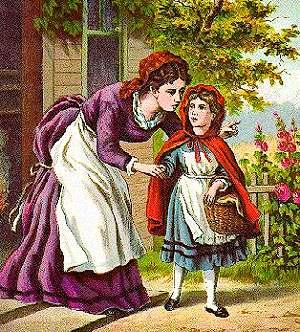
So throughout history, we've have fairy tales. Folktales are partly our culture's way of helping children understand psychological truths about the world, and themselves, and get a handle on them. There can be comfort in childhood -- hell, at any age -- in a fictional world in which we see a clear line between good and evil and believe monsters can be defeated. Even a person like me, who has always thrived in the shades of gray, can revel in diving into such a world for a while. And this helps ease children into the realities of life.
So-called psychoanalyst Bruno Bettleheim was a fraud and, in my humble opinion, an unredeemable dick for perpetuating the myth of "The Refrigerator Mother" on generations of parents and professionals. According to this theory, those of us who have kids on the autism spectrum not only caused the autism by our coldness toward our offspring, we actively hate our children and wish they'd never been born. I kid you not. There's loads of anecdotal evidence to the contrary, let me tell you. By the way, there's a similar theory blaming bad mothering for schizophrenia. Of course there is.
But I digress. As much as I dislike Bettleheim, he deserves credit for pointing out how old fairy tales, in all their terrifying, unsanitized glory, can help children in their journey to understanding "the dark side."
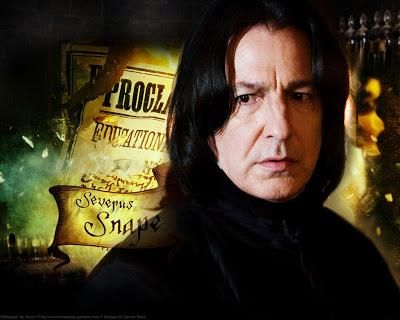
There is plenty of sci-fi and fantasy in this tradition. And as kids get older, it becomes gradually darker and more complex. For example, the "Harry Potter" books, for which I have a deep and abiding love, are geared toward preteens and adolescents rather than children. There is a wealth of life lessons in these stories -- we clearly see that being on the side of good, and standing against evil, involves love, loyalty, compassion, and rejecting bigotry. Through Harry's struggle with the darkness in himself, and morally ambiguous characters like James Potter and Severus Snape, kids navigate the shades of gray in human nature. They also see that while there aren't easy answers, happy endings can still prevail.
Now that two of my kids are teens, we are going for more hard-core fare. Harry Potter and Lord of the Rings are making way for Game of Thrones. And fantasy is often set aside in favor of realism in books and movies. I've included some films for discussion below.
II. The Philosophy -- This is undoubtedly grossly oversimplified, but it's probably enough for now. Philosophy isn't really my forte. Please feel free to contribute your thoughts. :-)

This character from "Calvin & Hobbes" -- Calvin's faithful stuffed tiger -- was named for philosopher Thomas Hobbes because of his somewhat dim view of human nature.
A. "State of Nature" and "Natural Law"
Seventeenth century English philosopher Thomas Hobbes suggested that, left to our own devices, humans would exist in a "state of nature," sort of a free-for-all battle with everyone fighting for his own needs. In this kind of world, life is "solitary, poor, nasty, brutish, and short." That's why we enter into a "social contract," giving up some liberty in exchange for laws and police. People devolving into a "state of nature," in the absence of clear leadership, is seen in one of Sarah's favorite novels, Lord of the Flies.
Another 17th century philosopher, John Locke, suggested life would be possible even without the government. We could live in a state of perfect freedom and equality bound by the Law of Nature. According to the Idea of "Natural Law," as creatures of God we have a clear duty not to harm others, except in self defense, and to help others if we can do so without hurting ourselves.
According to 18th century French philosopher Jean-Jacques Rousseau, in this "state of nature," we wouldn't necessarily find ourselves in a battle. True, people would be like savages motivated by immediate needs: food, sex, sleep, and fear of hunger and pain. However, we'd also be motivated by self-preservation and pity. Self-preservation in the sense that none of us can survive alone. In order to get some of our needs met, we would need to be able to live in harmony with others. And pity -- humans are naturally affected by others’ suffering. We have “an innate repugnance (in seeing) a fellow creature suffer.” So a combination of compassion and prudent self-interest, rather than law, right and morality, trumps savagery.
So, do most of us recognize certain moral rules and duties? If so, does it depend on religious belief?
Are we hard-wired to feel empathy for others and feel revulsion when others suffer? Or in the absence of government and police, would we all go "Lord of the Flies?"
B. Is It Risky To Deny that We Have a Dark Side?
There is a duality of man -- we all have light and dark in us. Sixteenth-century French philosopher Michel de Montaigne suggested that zealous extremism leads to a pathological denial of the disorderly nature of human nature. This reminds me strongly of Carl Jung's idea of "the shadow." One facet of this idea is that we all have darker impulses. When we repress them overzealously, it just makes them darker and more powerful when they do emerge.
Seventeenth-century French philosopher Blaise Pascal, on the other hand, believed we need spiritual zealotry to counteract & heal the dark aspects of human nature.
Does each of us have a "dark side?" If so, is there a risk to completely repressing or denying it? Is there a benefit to acknowledging and embracing all our feelings, urges, and personality traits, the good the bad and the ugly?
C. "Radical Evil"
According to German philosopher Immanuel Kant, we become radically evil when we put our own self interest over following moral law.
Does most evil stem from putting self interest over respecting the rights of others?
D. The Socialist View
Karl Marx basically said evil springs from material inequalities.
Is social injustice -- the fact that some have so much while others have so little -- the root of most evil?
E. Beyond Good & Evil
Friedrich Nietzsche felt the whole concept of the duality between good and evil is oversimplified, and called out philosophers on blindly buying into it. Furthermore, he felt this duality is basically a construct used to control others' behavior. We need a more complex understanding of morality.
I'd like to explore this idea further. Perhaps I'll come back to it later. But I have to confess that I've never read Nietzsche.
Just for Fun: Sheldon Cooper on Nietzsche:
III. Films for Discussion
I listed some movies I felt were worthy of discussion and loosely grouped them by category. What specific factors do you think are at the root of evil and cruelty? Each category, obviously, is a possible answer -- at least a partial answer -- to the question.
This is a work in progress. Please leave suggestions for additional categories or films in the comments. :-)
A. Greed for Money and Power - Maybe Jesus was on to something when he pointed out that love of money is the root of all evil. He certainly didn't hesitate to call people out on their unbridled greed. And we needn't look far to see the havoc addiction to money and power wreaks in the world.
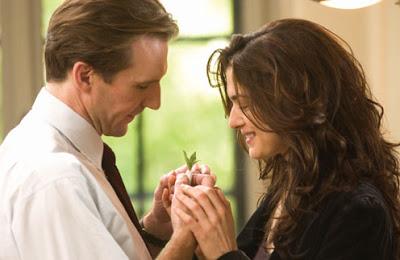
The Constant Gardner
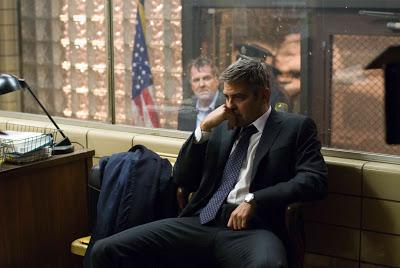
All three of these films are among my favorites. The Constant Gardner and Michael Clayton are complex dramas that explore corporate greed. In The Constant Gardner we see a scenario that is, sadly, all too common: a U.S. corporation exploiting people in a "third world" nation. In Michael Clayton, which features my all-time favorite performances by Tom Wilkinson and George Clooney, the corporation's victims are closer to home. In each of these movies, we also see the courage of people who stand up to the system.
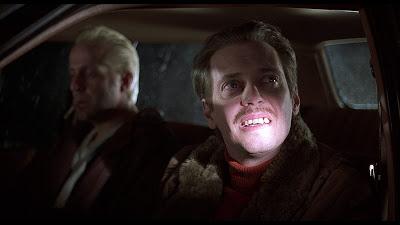
Fargo delves into petty greed. A car dealer enlists the help of a couple of hired thugs to kidnap his wife so he can con his father-in-law out of some money. The situation quickly spirals out of control. Partly because he underestimated what a stone-cold, bat shit crazy sociopath one of these thugs actually is.
In contrast we see sharp, no-nonsense police officer Marge Gunderson and her husband, who are awaiting the birth of their first child. These are people who are not driven by pecuniary interests. They're basically content with what they have. And they're motivated by a sense of justice, the satisfaction of doing meaningful work, and love. That may be as good an antidote to greed as we're ever likely to find.
B. Racism and Bigotry -- This topic is too big and complex to tackle in any way that will do it justice. But these films could provide enough fodder for a lifetime of discussion. I find it helpful to start by discussing with my kids how and why certain groups are scapegoated within a culture.
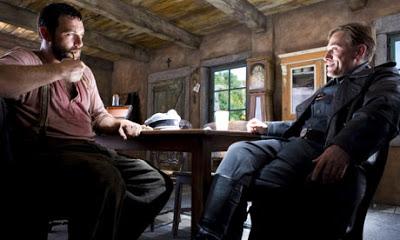
Inglorious Basterds
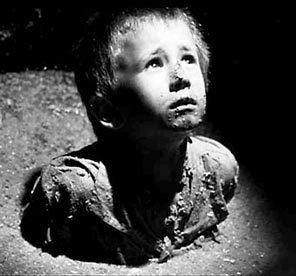
Inglorious Basterds and Schindler's List deal with the Holocaust, the largest genocide in history. Many groups were targeted for extermination, including Jews, Gypsies, Jehovah's Witnesses, homosexuals, and individuals with disabilities. The scope of these atrocities is still being studied and documented and the total number of deaths -- which continues to grow as more facts are uncovered -- may be as high as 20 million.
There are many excellent books and films dealing with this part of history. I chose these because I think they have broad appeal. The beginning of Inglorious Basterds, which I discussed in more detail in another post, shows a Nazi officer hunting down Jewish families hidden in gentile homes. It's a harrowing and unforgettable scene. Schindler's List captures the systematic murder of Jews and the casual sadism shown by individuals who have become thoroughly desensitized to human suffering. However, it also portrays the good accomplished by someone who becomes sensitized, and rejects greed, in order to save lives.
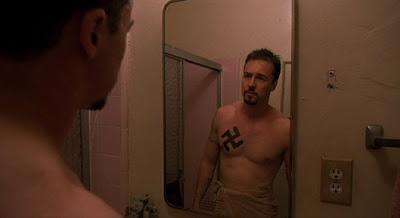
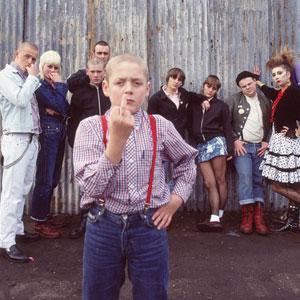
American History X and This is England are disturbing films about neo-Nazi groups and how they create escalating violence. One of the things that makes American History X so powerful is it also explores the question: can an "evil" person be redeemed? After watching the infamous "curb stomp" scene, which I've tried unsuccessfully to scrub from my brain ever since, I'd written off Edward Norton's character as beyond hope. However, he surprised me.
This is England, one of Sarah's favorite films by one of her favorite directors, shows a child being sucked into skinhead culture. It also portrays a relatively harmless group of thugs -- kids disconnected from their families and society -- sinking into greater racism, hatred, and violence. It helped me understand how these groups evolve.
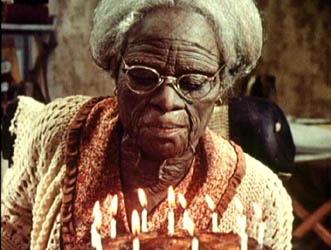
While writing this post, I couldn't think of any terrific films about racism and segregation in the United States. I'm sure there is a plethora of movies dealing with this topic, but no great ones came to mind. However, The Autobiography of Miss Jane Pittman, based on a novel by Ernest Gaines -- author of the wonderful novels A Gathering of Old Men and A Lesson Before Dying -- seems like a good starting point. I don't remember the movie well, but I recall that the history revealed is devastating and fascinating. It follows the life of a woman from the time of slavery to the era of "Jim Crow."
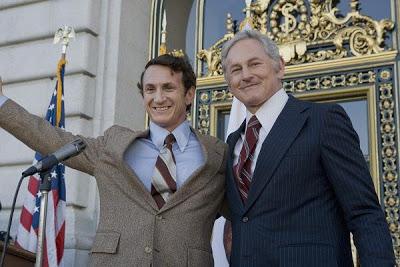
While bigotry is too big a topic to cover in full, I couldn't leave this subject without including a film exploring homophobia, one of the most tenacious forms of prejudice in our culture. Milk is an excellent movie about the gay rights movement in the United States.
C. "Following the Herd" or Complying with Authority
Mark Twain famously said: "Whenever you find yourself on the side of the majority, it is time to pause and reflect." I definitely think he was on to something. Which leads me to a question. Are those who "are just following orders," or simply remain silent, as morally culpable as those who instigate evil?
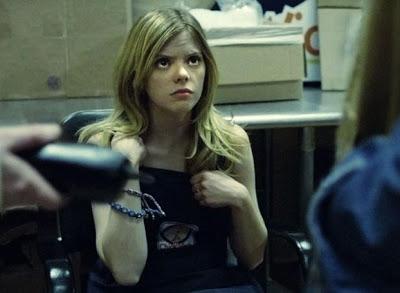
I talked about this difficult and provocative movie in detail in another post, which sparked fascinating discussion in the comments section. It looks at just how far people will go to comply with those they perceive as authority figures. This was a huge springboard for discussion in our house. We talked about various subjects, including the Milgram experiment, the Stanford prison experiment, the "Jim Jones massacre" in Guyana, the incident at Waco, and the Mai Lai massacre.
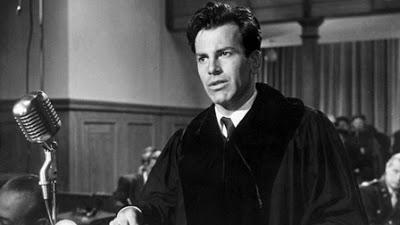
Judgement at Nuremberg
I haven't seen this yet, but it's among the next films on my list. It looks at the trials of Nazi officers, after World War II and the holocaust. We they less culpable because they were "following orders?"
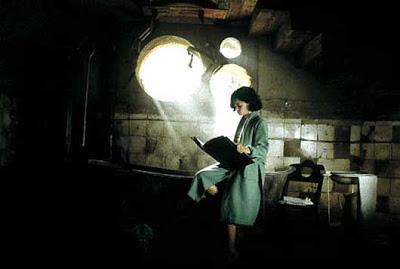
This movie, a wonderful dark fantasy set at the end of the Spanish Civil War, looks at the issue of compliance from another angle. The heroic actions of resistants who refuse to obey are mirrored by the actions of a little girl in her magical world.
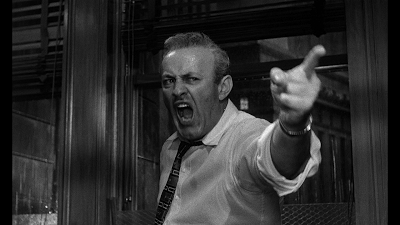
A group of jurors serves at a murder trial, and the life of a young man rests in their hands. Eleven of the twelve men are ready to deliver a hasty conviction. One man holds out, feeling they haven't given the evidence enough consideration. Laboring in sweltering heat and with rising tempers, the jurors strive to reach a consensus. Hidden weaknesses and prejudices emerge, and at least one man discovers reservoirs of courage he didn't know he had. This classic film is an excellent study of a person taking a stand against the majority.
D. Grandiosity and Narcissism
Parents have certain cosmic responsibilities just because -- well -- it's part of the job. One of them is to teach our kids this basic lesson: "your rights and feelings are no more or less important that anyone else's." This lesson is usually absorbed somewhere between the ages of 3 and 30. ;-) Some people, of course, never grasp the concept. That's one reason the DSM, a therapist's go-to manual for diagnoses, has a whole section on personality disorders.
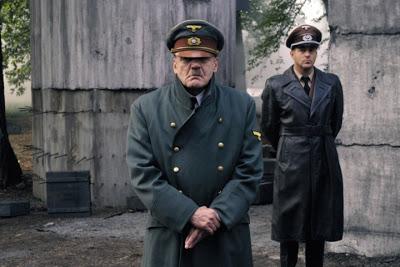
Downfall
I don't have much here, but Downfall sparked some interesting discussion among me and my teens. During the final days before the fall of Berlin, near the end of World War II, we see Adolf Hitler becoming increasingly unstable and delusional. This brings his pathological sense of self-importance to the forefront.
E. Antisocial Personality/Psychopathy
When I was in graduate school, trying to learn to be a counselor, one of my research papers was on antisocial personality disorder. I culled through various studies trying to figure out, from a medical and psychological perspective, why some people appear to lack conscience or empathy. I found plenty of material and cranked out a paper. But in the end, the overreaching conclusion I drew was "who the fuck knows?"
One of our professors showed us a film on a well-known serial killer, Ken Bianchi, "The Hillside Strangler." He murdered women for pure sport and faked multiple personality disorder in an effort to cop an insanity plea. They brought on a whole phalanx of psychological experts in the course of this film. In the end, they interviewed one very bewildered shrink who simply said, "Maybe some people are just evil." (Gee, y'think?) Not very edifying, perhaps. But can you come up with a better explanation?
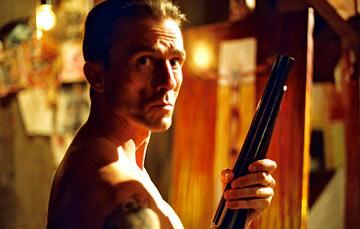
Antibodies -- This movie highlights a sociopathic killer, and it touches on interesting themes including innocence vs. evil. The main character, who is devoutly religious and very repressed, begins battling his own darker impulses as he searches for a serial killer. I thought this was a strong film, overall, though I hated the ending.
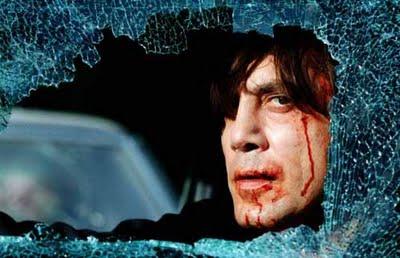
No Country for Old Men -- This is a wonderful film focusing on another bat shit crazy sociopath. It probes myriad themes, including greed, good and evil, lost innocence, and facing ones mortality.
What say you, readers? Thoughts? Ideas? Suggestions?
